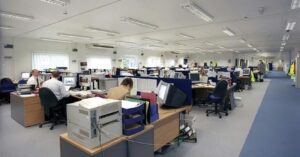The Potential for a Brighter Post Covid Era
 Even though the largely overlooked long-covid sufferers would beg to differ, it would appear that the Covid era is almost over. I’m excited by signs indicating that in the post covid era we may place greater emphasis on living than and staying in touch with those who matter to us and devote less time to work and the accumulation of wealth. Even if such a suggestion sounds overly hypothetical or naive, there’s no harm in exploring some of the possibilities.
Even though the largely overlooked long-covid sufferers would beg to differ, it would appear that the Covid era is almost over. I’m excited by signs indicating that in the post covid era we may place greater emphasis on living than and staying in touch with those who matter to us and devote less time to work and the accumulation of wealth. Even if such a suggestion sounds overly hypothetical or naive, there’s no harm in exploring some of the possibilities.
Discarded Aspects of Our Lives
While Russia’s primal and brutal invasion of Ukraine and threatened nuclear attacks on the west have dominated our attention, we have begun to notice how the pandemic has changed our lives and that of those with whom we come in contact. I perceive such changes to potentially transforming our society into one that is a less materialistic and aggressively competitive. In contrast in our pre Covid society we blindly spend our lives paying off ever larger mortgages and chasing higher-paid and more time-consuming jobs. This was so at least partly because we were bombarded with messages suggesting that we needed to act this way if we were going to survive old age and reap huge financial benefits from treating our houses like short-term investments rather than homes. 
Even the resulting windfalls for some came at a great cost. Those who threw their energy into pursuing and securing the funding to purchase a fibro shack for ten times their annual salary found that it brought them less rather than more happiness and almost no time to spend with families and loved ones.
Labour Shortage
It seems that being forced to stay at home gave us a taste of what we had been missing and an awareness of how little money is required to live well and how much we valued the limited time with friends and families. Consequently, I believe, we find ourselves experiencing a labour shortage as workers choose to work fewer hours or feel they don’t need to work at all. Those of us who live in regional areas, which were previously considered to be tourist destinations, are witnessing first hand the influx of residents from our major cities.
 These new neighbours came to realise that being able to work remotely permitted them to live more comfortably in a dream regional location. Others have realised that freed of the costs of urban living, they do not have to work full time or at all to maintain their desired lifestyle, focused on living rather than working. The resulting reduction in our full-time workforce need not cause industries and especially small businesses to die, as long as our federal government adopts a sensible policy towards skilled migrants and backpackers wanting to enter or migrate to this country. I’m rediscovering the pleasure of chatting with young people from exotic locations working in the service industry. It makes our society seem so much less insular.
These new neighbours came to realise that being able to work remotely permitted them to live more comfortably in a dream regional location. Others have realised that freed of the costs of urban living, they do not have to work full time or at all to maintain their desired lifestyle, focused on living rather than working. The resulting reduction in our full-time workforce need not cause industries and especially small businesses to die, as long as our federal government adopts a sensible policy towards skilled migrants and backpackers wanting to enter or migrate to this country. I’m rediscovering the pleasure of chatting with young people from exotic locations working in the service industry. It makes our society seem so much less insular.
Effect on Workplaces
 However, the dwindling numbers and relocation of our workforce have undoubtedly affected many workplaces. It is a shame that some have failed to reassess where and how they operate. While IT permits much work to be done from home, there is clearly a need in most cases to meet with clients and co-workers and engage in a team or other workplace meeting. It is a failure of imagination that leads to the conclusion that workplaces need to remain leased or purchased at great cost to facilitate such occasional meetings.
However, the dwindling numbers and relocation of our workforce have undoubtedly affected many workplaces. It is a shame that some have failed to reassess where and how they operate. While IT permits much work to be done from home, there is clearly a need in most cases to meet with clients and co-workers and engage in a team or other workplace meeting. It is a failure of imagination that leads to the conclusion that workplaces need to remain leased or purchased at great cost to facilitate such occasional meetings.
 Working away from the workplace need not be lonely or insulating and is likely to strengthen teamwork and interaction between colleagues. Different workplaces clearly have different needs, but it is clear that reduced reliance on the workplace is almost certain.
Working away from the workplace need not be lonely or insulating and is likely to strengthen teamwork and interaction between colleagues. Different workplaces clearly have different needs, but it is clear that reduced reliance on the workplace is almost certain.
I see at least two positive implications of this development. One is the lifestyle enhancement flowing from the flexibility of working from home or anywhere that enables such work to be undertaken alone or with clients or colleagues. Meeting with a supervisor or colleague in a cafe rather than a sterile office has to make work feel less Dickensian. Secondly, fewer employees working in an office or other workplace will free up potential residential space in the CBD and to a lesser extent elsewhere. Just imagine how many of us would consider living in a city apartment if city streets were as utilised after work hours as suburban restaurant strips. The additional benefit of this would be proximity to workplaces, even if reduced in size, where we may be occasionally required. Increased numbersworking in the city norm would potentially also benefit traffic congestion and associated costs.
It would be a great shame if such or even more exciting changes were not considered and implements. Let’s not be content with returning to the pre-Covid norm.